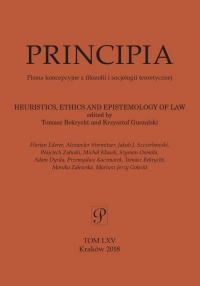The Moral Status of Helping and the Identified Victim Effect
The Moral Status of Helping and the Identified Victim Effect
Author(s): Wojciech ZałuskiSubject(s): Ethics / Practical Philosophy, Victimology
Published by: Wydawnictwo Uniwersytetu Jagiellońskiego
Keywords: identified victim; statistical victim; obligation to help; utilitarianism; imperfect duty; supererogation;
Summary/Abstract: Psychologists have noticed an interesting regularity, consisting in people being more willing to help ‘identified victims’ than ‘statistical victims’ (this regularity has been called ‘the identifiable victim effect’). One of the controversial problems connected with this effect is a normative one, viz. can preferring identified victims be justified in the contexts of private decisions (i.e., made by ‘private’ citizens rather than public institutions)? The goal of this article is to defend three claims: (1) that the answer to the above normative question depends on two factors: the strength of the identified victims effect and the assumed view (utilitarian or non-utilitarian) on the normative status of helping; (2) that the proper view is one of the variants of the non-utilitarian approach (referred to in the paper as ‘negative morality with elements of positive-partial morality’); (3) that (with the exception of the strong variant of the identified victim effect) preferring identified victims is not morally improper.
Journal: PRINCIPIA
- Issue Year: 2018
- Issue No: 65
- Page Range: 49-68
- Page Count: 20
- Language: English

